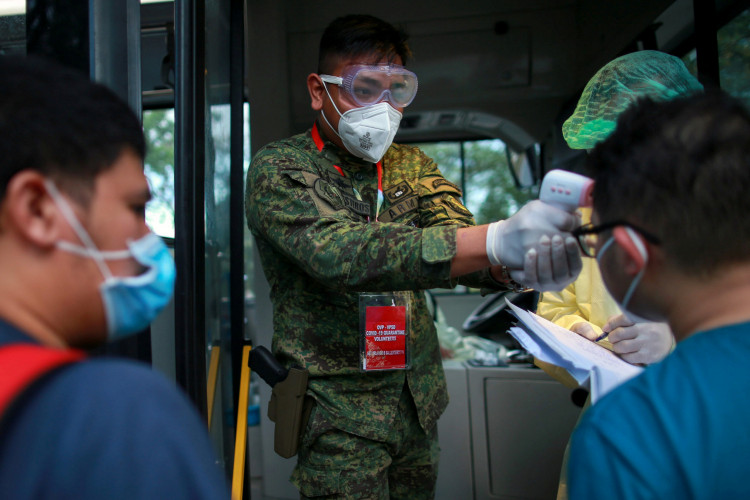The Philippines and Indonesia have recently seen a spike in new COVID-19 infections and health experts believe there is a need for more widespread testing to ensure that the correct number of infections and fatalities are logged appropriately.
Philippines Breaches 63,000 Cases
On Friday, the Philippines' Department of Health (DOH) reported 1,841 new COVID-19 cases, bringing the national infection toll to 63,001. There were also 17 new deaths from the virus, bringing the fatality toll to 1,660.
The news came within hours after the Armed Forces of the Philippines confirmed that the total number of AFP personnel who have been infected with the novel coronavirus since the outbreak started has reached 221.
Despite the said number, AFP spokesperson Maj. Gen. Edgard Arevalo revealed that of the 221 infected soldiers, 126 have already been cleared of COVID-19 and have since recovered. The recovered military personnel have also been allowed to return to service.
Foreign Travels to Resume in August
Despite the steady rise in COVID-19 infections across the country, the Malacañang Palace announced on Friday that the Philippines will start allowing foreign nationals with long-term visas to enter the country starting August 1.
The Philippine government noted that foreign nationals are required to secure pre-booked quarantine facility certification as well as a pre-booked COVID-19 test certificate from a provider in the country.
However, some global health experts have expressed concerns about the potential impact of foreign travels around the world and how these could propagate the further spreading of the novel coronavirus.
Indonesia Soars Past 83,000 Cases
In Indonesia, the Health Ministry announced 1,462 new confirmed coronavirus cases on Friday. The national infection toll has now reached 83,130. There were also 84 more deaths from the virus, bringing the national fatality toll to 3,957.
Of the new cases in the country, Jakarta accounted for 253 new confirmed COVID-19 cases, while East Java logged 255 new infections. The high numbers were followed by Central Java with 238, South Kalimantan with 101, Bali with 86, and finally, South Sulawesi with 83.
Many New Cases Traced Back to Poor Ventilated Areas
The Indonesian Health Ministry's head of disease control and prevention Achmad Yurianto said on Thursday that many of the new coronavirus infections in the country have been linked back to areas with poor ventilation such as office settings.
Yurianto further noted that many working spaces across the country "rely on air-conditioners" and this dependence on air-conditioned settings "increases the risk of transmission."
Aside from getting the virus from poorly ventilated and closed spaces, Yurianto said some office workers refuse to wear face masks, raising the stakes of them becoming carriers.
Testing Plays Key Role in Failure to Control Virus
Health experts have said earlier this week that Indonesia's COVID-19 outbreak is slowly unraveling as a failed crisis as inadequate testing remains a major pitfall for the government's anti-coronavirus efforts.
Some analysts also noted that the government's poor communication may have played a role in the downfall of efforts to contain the fast-spreading disease.
Indonesia remains the hardest-hit country in all of Southeast Asia, followed by Singapore, the Philippines, Malaysia, and Thailand.





